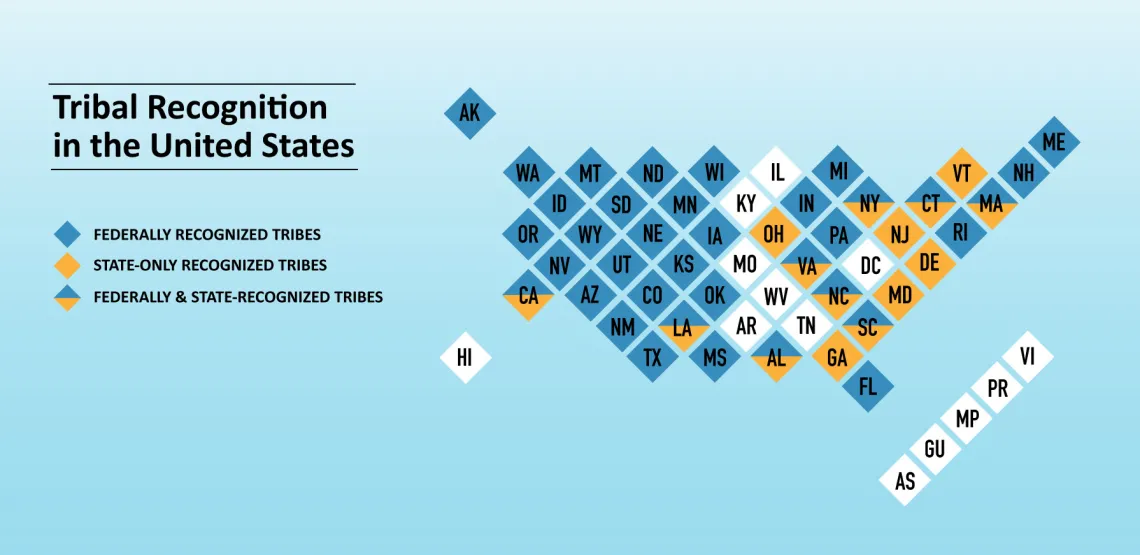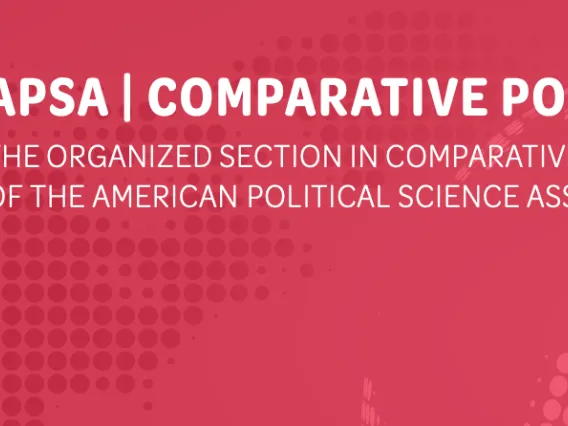Governance Under State Recognition
"Recognition refers to how other governments view a nation, not how a nation views itself or how it acts. Neither federal nor state governments grant sovereignty to Indigenous peoples."
–Danielle Hiraldo
Recognition—also referred to as “acknowledgement”—is the formalization of a government-to-government relationship between a settler-colonial government and a Native nation government. In the United States, there are two different recognition classifications: federal and state. Each designation offers tribes a political relationship with an external government as one avenue of many to assert governing authority. State recognition might be defined as a political relationship with the state in which the tribe shares geography. Alexa Koenig and Jonathan Stein (2008) argue, “Much like federal recognition, it [state recognition] operates as a means for states to acknowledge the longstanding existence of tribes within their borders and to establish a government-to-government relationship to coordinate and communicate with tribes” (86).

Publications & Projects






